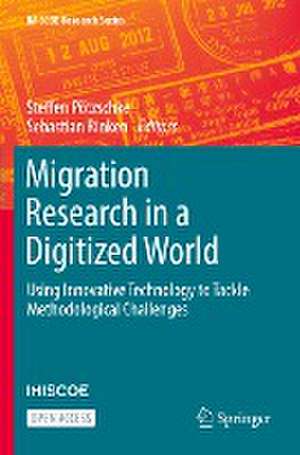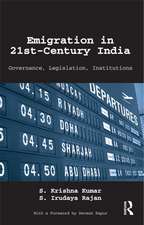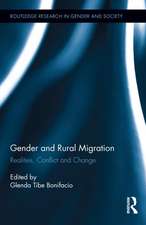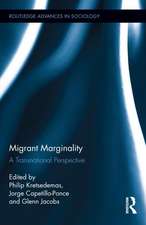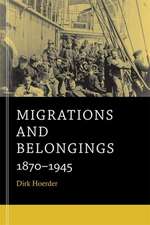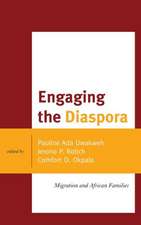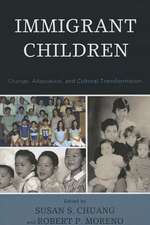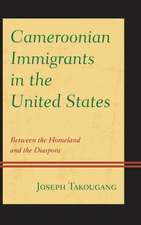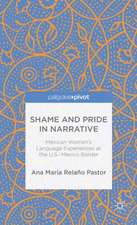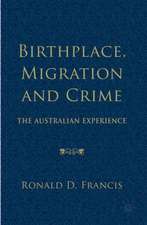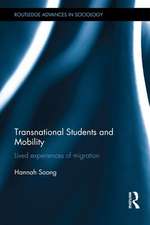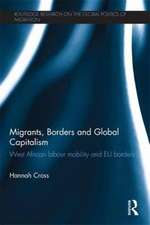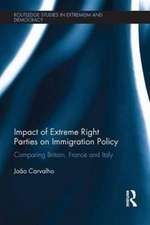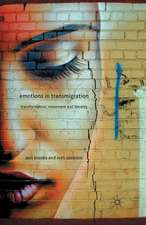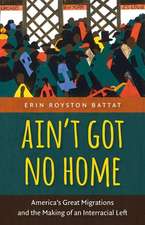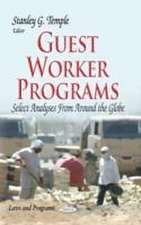Migration Research in a Digitized World: Using Innovative Technology to Tackle Methodological Challenges: IMISCOE Research Series
Editat de Steffen Pötzschke, Sebastian Rinkenen Limba Engleză Paperback – iul 2022
| Toate formatele și edițiile | Preț | Express |
|---|---|---|
| Paperback (1) | 351.66 lei 6-8 săpt. | |
| Springer – iul 2022 | 351.66 lei 6-8 săpt. | |
| Hardback (1) | 425.42 lei 6-8 săpt. | |
| Springer International Publishing – 13 iul 2022 | 425.42 lei 6-8 săpt. |
Din seria IMISCOE Research Series
-
 Preț: 228.70 lei
Preț: 228.70 lei -
 Preț: 279.98 lei
Preț: 279.98 lei -
 Preț: 422.90 lei
Preț: 422.90 lei -
 Preț: 279.62 lei
Preț: 279.62 lei -
 Preț: 451.76 lei
Preț: 451.76 lei -
 Preț: 179.42 lei
Preț: 179.42 lei -
 Preț: 424.81 lei
Preț: 424.81 lei -
 Preț: 438.26 lei
Preț: 438.26 lei -
 Preț: 280.27 lei
Preț: 280.27 lei -
 Preț: 132.95 lei
Preț: 132.95 lei -
 Preț: 281.15 lei
Preț: 281.15 lei -
 Preț: 266.19 lei
Preț: 266.19 lei -
 Preț: 359.43 lei
Preț: 359.43 lei -
 Preț: 231.66 lei
Preț: 231.66 lei -
 Preț: 436.35 lei
Preț: 436.35 lei -
 Preț: 434.44 lei
Preț: 434.44 lei - 15%
 Preț: 700.75 lei
Preț: 700.75 lei -
 Preț: 424.43 lei
Preț: 424.43 lei -
 Preț: 425.20 lei
Preț: 425.20 lei -
 Preț: 429.83 lei
Preț: 429.83 lei -
 Preț: 425.58 lei
Preț: 425.58 lei -
 Preț: 429.61 lei
Preț: 429.61 lei -
 Preț: 424.43 lei
Preț: 424.43 lei -
 Preț: 426.18 lei
Preț: 426.18 lei -
 Preț: 420.79 lei
Preț: 420.79 lei -
 Preț: 426.94 lei
Preț: 426.94 lei -
 Preț: 429.61 lei
Preț: 429.61 lei -
 Preț: 425.42 lei
Preț: 425.42 lei - 15%
 Preț: 636.45 lei
Preț: 636.45 lei -
 Preț: 426.18 lei
Preț: 426.18 lei -
 Preț: 424.99 lei
Preț: 424.99 lei -
 Preț: 430.21 lei
Preț: 430.21 lei -
 Preț: 423.84 lei
Preț: 423.84 lei -
 Preț: 427.71 lei
Preț: 427.71 lei -
 Preț: 427.71 lei
Preț: 427.71 lei -
 Preț: 433.85 lei
Preț: 433.85 lei -
 Preț: 430.79 lei
Preț: 430.79 lei -
 Preț: 424.43 lei
Preț: 424.43 lei -
 Preț: 426.56 lei
Preț: 426.56 lei - 15%
 Preț: 583.45 lei
Preț: 583.45 lei -
 Preț: 427.71 lei
Preț: 427.71 lei - 15%
 Preț: 528.13 lei
Preț: 528.13 lei
Preț: 351.66 lei
Nou
Puncte Express: 527
Preț estimativ în valută:
67.29€ • 73.32$ • 56.70£
67.29€ • 73.32$ • 56.70£
Carte tipărită la comandă
Livrare economică 24 aprilie-08 mai
Preluare comenzi: 021 569.72.76
Specificații
ISBN-13: 9783031013218
ISBN-10: 3031013212
Ilustrații: Approx. 200 p.
Dimensiuni: 155 x 235 mm
Greutate: 0.34 kg
Ediția:1st ed. 2022
Editura: Springer
Colecția Springer
Seria IMISCOE Research Series
Locul publicării:Cham, Switzerland
ISBN-10: 3031013212
Ilustrații: Approx. 200 p.
Dimensiuni: 155 x 235 mm
Greutate: 0.34 kg
Ediția:1st ed. 2022
Editura: Springer
Colecția Springer
Seria IMISCOE Research Series
Locul publicării:Cham, Switzerland
Cuprins
Chapter 1. Introduction: Using Innovative Technologies to Tackle Methodological Challenges in Migration Research.- Part I: INNOVATION IN MIGRANT SURVEYS.- Chapter 2. Innovative Sample Designs for Studies of Refugees and Internally Displaced Persons.- Chapter 3. Targeting on Social Networking Sites as Sampling Strategy for Online Migrant Surveys: The Challenge of Biases and Search for Possible Solutions.- Chapter 4. Web-Based Respondent-Driven Sampling in Research on Multiple Migrants: Challenges and Opportunities.- Chapter 5. Computer-assisted Migration Research: What We Can Learn about Source Questionnaire Design and Translation from the Software Localization Field.- Chapter 6. Surveying Illiterates: Are Audio Files in Computer-assisted Self-interviews a Useful Supportive Tool?.- Part II: NEW DATA SOURCES AND THEIR POTENTIAL.- Chapter 7. Leveraging the Web for Migration Studies: Data Sources and Data Extraction.- Chapter 8. How Canada’s Data Ecosystem Offers Insights on the Options for Studying Migration in an Unprecedented Era of Information.- Chapter 9. Assessing Transnational Human Mobility on a Global Scale.- Chapter 10. Google Trends as a Tool for Public Opinion Research: An Illustration of the Perceived Threats of Immigration.- Chapter 11. Conclusion: Migration Research in Times of Ubiquitous Digitization.
Notă biografică
Steffen Pötzschke is a postdoctoral researcher and deputy team leader of the GESIS Panel at the GESIS – Leibniz-Institute for the Social Sciences in Mannheim (Germany). Furthermore, he is a corresponding member of the Institute for Migration Research and Intercultural Studies (University of Osnabrück, Germany). Steffen holds a master’s degree in International Migration and Intercultural Relations and a doctorate (Dr. phil.) from the University of Osnabrück. Steffen participated in several migration research projects and has profound practical knowledge in designing and implementing cross-cultural surveys. In his recent research, he investigates the possibility of using social networking sites as tools to sample hard-to-reach populations.
Sebastian Rinken (PhD, European University Institute, 1996) is deputy director of the Spanish Research Council’s Institute for Advanced Social Studies (IESA-CSIC) in Córdoba. He has published widely on immigrant populations’ social integration and natives’ attitudes toward immigration and immigrants, addressing issues such as the relation between ideological polarization and anti-immigrant sentiment, as well as the methodological challenge of eluding social desirability bias, among many others. His methodological repertoire includes qualitative approaches, probability-based surveys, non-probability sampling for on-site and online surveys, and survey experiments.
Sebastian Rinken (PhD, European University Institute, 1996) is deputy director of the Spanish Research Council’s Institute for Advanced Social Studies (IESA-CSIC) in Córdoba. He has published widely on immigrant populations’ social integration and natives’ attitudes toward immigration and immigrants, addressing issues such as the relation between ideological polarization and anti-immigrant sentiment, as well as the methodological challenge of eluding social desirability bias, among many others. His methodological repertoire includes qualitative approaches, probability-based surveys, non-probability sampling for on-site and online surveys, and survey experiments.
Textul de pe ultima copertă
This open access book explores implications of the digital revolution for migration scholars’ methodological toolkit. New information and communication technologies hold considerable potential to improve the quality of migration research by originating previously non-viable solutions to a myriad of methodological challenges in this field of study. Combining cutting-edge migration scholarship and methodological expertise, the book addresses a range of crucial issues related to both researcher-designed data collections and the secondary use of “big data”, highlighting opportunities as well as challenges and limitations. A valuable source for students and scholars engaged in migration research, the book will also be of keen interest to policymakers.
Caracteristici
This open access book addresses the interface of international migration and digital innovation
Shows how technological innovations create new avenues for research on highly mobile populations
Enhances the quality of migration research by interconnecting migration scholarship with methodological expertise
This book is open access, which means that you have free and unlimited access
Shows how technological innovations create new avenues for research on highly mobile populations
Enhances the quality of migration research by interconnecting migration scholarship with methodological expertise
This book is open access, which means that you have free and unlimited access
